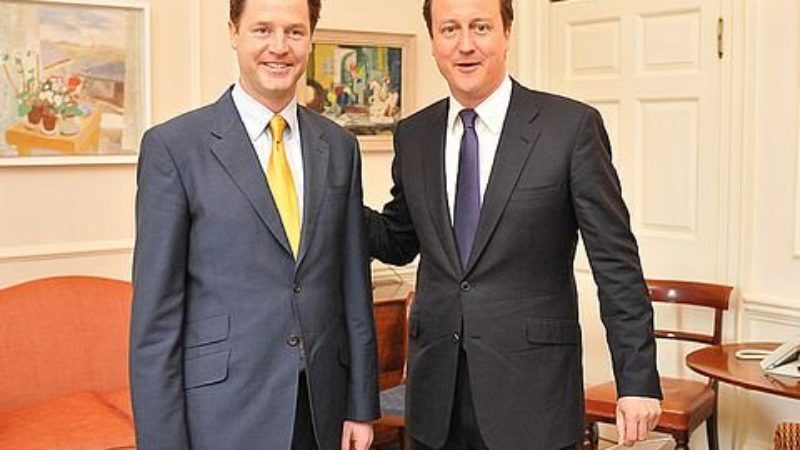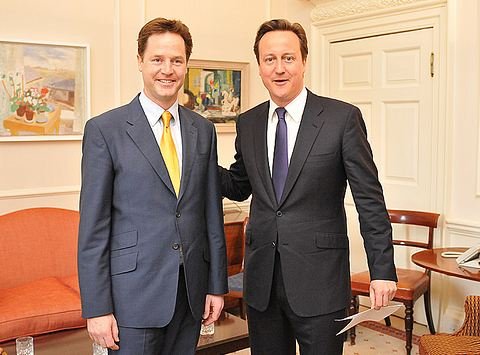
A Coalition Government has not exactly been a happy experience for the British public, who voted in the majority for two avowedly centre left parties opposed to austerity, and then found one of them (the Lib Dems) ditching its manifesto pledges and forming an austerity government with the Tories.
Nor has it been a happy experience for either partner, with the Lib Dems losing the vast majority of their 2010 support because they sold out their principles for five years in ministerial limos, and the Tories losing a chunk of their voters, members and even MPs to UKIP because they were unable to deliver a government even remotely as right wing as their core support had been led to believe they would get from their previous rhetoric.

In light of this salutary lesson, I have a simple proposal for Ed Miliband and Labour. We should simply rule out forming a coalition with any other party after the General Election. We should tell voters we will either govern alone, or not at all. Governing alone might mean achieving a majority or it might mean forming a single-party government without a majority if there is a hung parliament. The latter could involve a “confidence and supply” arrangement where another party or parties agree to not no confidence us and allow us to pass budgets. Or it might involve a more case-by-case, vote-by-vote management of the Commons where the whips might for instance do ad hoc deals with a different party on defence and security issues to the one they construct a majority with for votes on Europe and social policies. If we get reasonably near the 326 seats winning post we can just act like we have an effective majority because Sinn Fein don’t take their seats and the SDLP as a sister party at European level have a default position of sustaining a Labour government.
Making a dramatic and categorical statement about this would have a number of benefits:
1) It would seize the headlines and force the Tories to reveal their own hand regarding coalition negotiations.
2) It makes it clear that voting Lib Dem, SNP, Plaid Cymru or Green is not contributing to some “broad front” centre-left coalition as we won’t go into government with them.
3) It defines the election more clearly as a binary choice between a Labour-only government or a Tory or Tory-led one, which will make left-leaning voters less likely to vote for smaller parties and make a hung parliament less likely.
4) It demonstrates self-confidence that we can win a majority or at least get very near to it.
5) It is consistent with Labour’s historic position – we have only participated in coalitions in wartime, and have governed alone without a majority in 1924, 1929 and February 1974.
6) It means we keep the party united. The folk memory of Ramsay MacDonald’s betrayal in leaving Labour to form a National Government is one of the most important aspects of Labour’s collective identity. At all costs we have to avoid the kind of split that might happen if we negotiated a coalition deal that was unacceptable to the party grassroots.
7) It means we will try to get our manifesto policies through the Commons and if we fail it will be because the other parties voted against our ideas, not because we bargained them away in coalition talks to win power. This is more democratic – voters will either get the manifesto they voted for, or not, not a hybrid with some Labour measures and some we opposed but subsequently accepted in a deal.
8) The Lib Dems should not be able to stay in government by flipping coalition partners if they have been rejected by the electorate and lost many votes and seats. That would be profoundly undemocratic.
The sooner we make such an announcement, and make it forcefully, the better for our chances of winning.




More from LabourList
‘Energy efficiency changes must work for older private renters’
‘Labour’s creative destruction dilemma’
Economic stability for an uncertain world: Spring Statement 2026